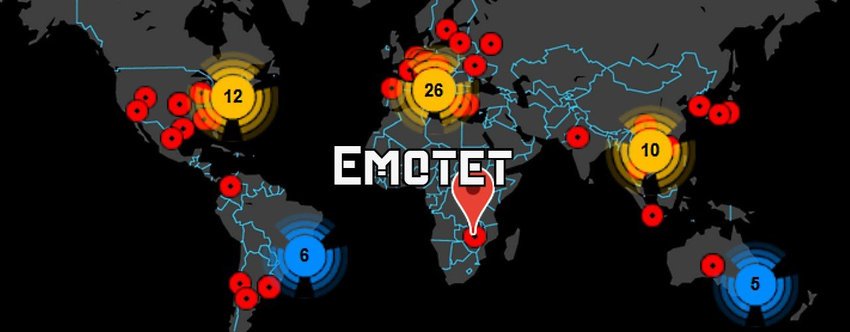New service Have I Be Emotet σας επιτρέπει να ελέγξετε εάν ένας τομέας ή μία διεύθυνση email σας συμμετείχε σε ανεπιθύμητα messages Emote.

The Emotet is a malware infection, which is spread through spam emails that contain malicious Word or Excel documents. When the victim opens such a file and the macros in Word or Excel are activated, the Emotet trojan will be installed on his computer.
When infected, Emotet will steal the victim's email and relay it to attacker-controlled servers. These emails will then be used as future junk mail campaigns to make the malicious spam look legitimate.
Over time, the Emotet trojan will download and install other malware, such as TrickBot and QakBot on an infected user's computer. These trojans are known to lead to ransomware attacks by Ryuk, Conti and ProLock ransomware operators.
The Emonet trojan also steals e-bakning codes from the victim, which prompted the Cybercrime Prosecution will issue a warning to Greek internet users.
Today, the Italian cyber security company TG Soft, launched a new service called Have I Been Emotet, which lets you check if a domain or email address has been used as a sender or recipient of Emotet spam campaigns.
TG Soft reports that their database consists of controlled outgoing emails created by Emotet between August and September 23, 2020. During this period, they have collected over 2,1 million email addresses from approximately 700.000 outgoing emails.
To use the service, you can simply enter a domain or email address and it will let you know how many times the email address or domain has been used as the sender or recipient of an email.
For example, using this service, we can see that the microsoft.com domain was used in recent Emotet campaigns and that the company received Emotet spam forty-two times.
If you use this service and find that your email address or domain has been used as a recipient, this does not necessarily mean that you are infected. To be infected, a user would have to open the email attachments and activate the macros before installing the malware.
On the other hand, if your domain has users referred to as a "REAL" sender, then it is likely that one of your email domain users was infected and should be thoroughly scanned. research of your computers.





